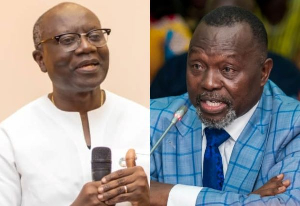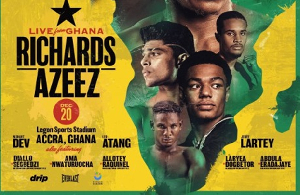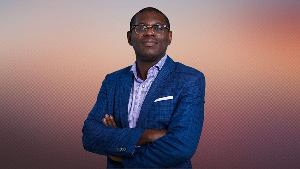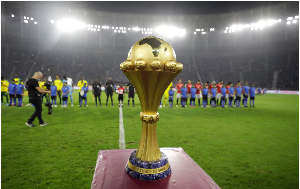By Kofi Akosah-Sarpong, in Accra, Ghana
You don’t have to be a political scientist to acknowledge that democracy is rising in Africa. But you get the sense better when former military junta members reconcile Africa’s development challenges with democracy, and condemn military juntas that have asphyxiated Africa’s progress. So Africa’s democracy scene becomes exciting when you hear the likes of Nigeria’s Gen. Olusegun Obasanjo talk democracy as Africa’s hope for progress and dissuade Africa’s military from venturing into coups.
A democratized military junta leader, Obasanjo said this in front of Ghanaian military officers, at their core training grounds, the Ghana Military Academy in Accra. That makes Obasanjo not only instructive but also revealing, not peripheral but at the core, talking face-to-face to a military institution some of which graduates helped messed up Africa. While military juntas in South Korea, Brazil, Chile and Taiwan helped laid down the foundation of their countries progress, in Africa it is the opposite.
Self-serving motives aside, Africa’s military politician didn’t understand Africa and in their confusion helped worsened the African situation. Let’s be very frank and true to Africa: if not in Africa, where in the world could Gen. Idi Amin or Gen. Samuel Doe be Heads of State? And you don’t have to think too hard to understand why they destroyed their respective countries.
In Amin, Doe and others, Africa discovered that the likes of them couldn’t comprehend the complicated and technical nature of the development challenges facing Africa. Here Obasanjo isn’t boring but worthy, in the sense that he has been involved in coups, was entangled in military junta troubles with the brutal Gen. Sani Abacha junta that nearly killed him , and after all these, was democratically elected a two-term civilian president. Obasanjo is a mixed bag of Africa’s political evolution, more so coming from Africa’s most populous country, Nigeria. Now the old General is highly refined, haven’t seen it all, and has come to the agonizing conclusion that military coup is bad for Africa.
Now and then you need somebody like Obasanjo’s gravitas to clarify Africa, to explain Africa’s contentiousness to Africa. It needn’t necessarily be about political partisanship but it could be about the military’s place in Africa’s democratic evolution. But the more on democracy the better since from Africa’s political history, good leadership as the foundation for quality governance issue for progress has been a problem.
In his Ghana Military Academy’s deliberations, Obasanjo became some sort of one-man Athenian kleroterion. Despite thousands of graduates, Obasanjo was picked by his Alma Mata to discuss the military, development, and democracy in Africa.
Why? To make tough reflections and deliver it unto the face of the military school (as part of the solution to Africa’s political disaster). At the Ghana Military Academy some of its graduates have been involved in coups in the past including Obasanjo himself. Obasanjo, a democratized military officer, took democracy to the military school and hatched some sort of “deliberative democracy” with it. Here the senses of the discussions are that democracy isn’t grown by civilians alone but the military, too. It is a cooperative venture and it is “deliberative-democracy exercise.”
Given the political troubles Africa has gone through in the past 50 years, a reasonable amount committed by its military, Obasanjo’s deliberative democratic exercise with the African military is a productive moment for Africa
Opinions of Sunday, 5 September 2010
Columnist: Akosah-Sarpong, Kofi














